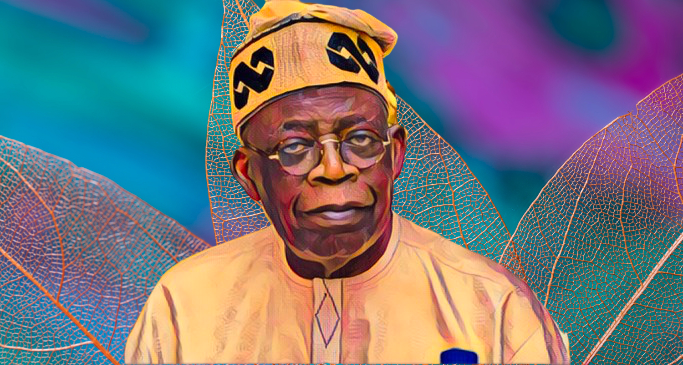In a stark reminder of the economic challenges facing Nigeria, President Bola Ahmed Tinubu’s leadership is increasingly scrutinized as the nation grapples with soaring inflation and job losses. The situation has escalated to the point where the cheers and praises that once heralded his arrival are giving way to cries of distress and frustration.
Recently, a significant incident in Lagos highlighted the shifting public sentiment. As President Tinubu’s convoy passed through the bustling Idumota Market, he was met not with the usual adulation but with vocal protests from traders and residents. Their cries of “Ebi npa wa o” (We are hungry) were a poignant reflection of the hardship faced by many Nigerians under the current economic climate.
The situation in Nigeria has grown increasingly dire since Tinubu took office in May 2023. Inflation rates have skyrocketed, with headline inflation at 28.20% and food inflation even higher at 32.84%, according to the National Bureau of Statistics (NBS). This has led to widespread hardship, with many Nigerians struggling to afford basic necessities.
The economic turmoil has also taken a toll on foreign investment and in-country production. According to the Manufacturers Association of Nigeria (MAN), members spent over N60.4 billion on alternative energy in the first half of 2023 alone, highlighting the country’s dire energy situation. This is compounded by reports from MultiChoice, a South African broadcasting service provider, which announced a $72.4 million operating loss, attributing it largely to Nigeria’s challenging business environment.
According to a report by The Guardian, telecommunications giants MTN Nigeria and Airtel have also reported significant losses, further indicating the dire state of the economy. Moreover, several pharmaceutical companies, including GlaxoSmithKline and Sanofi-Aventis, as well as other multinational corporations, are either scaling down operations or leaving Nigeria altogether, resulting in thousands of job losses.
The situation has not gone unnoticed by labor unions and other groups. The Trade Union Congress of Nigeria (TUC) has expressed its disappointment with the Tinubu administration, citing a litany of economic challenges and unfulfilled promises. The TUC’s demands include reducing inflation to sub-Saharan Africa’s regional average and addressing the high cost of living.
Amid these challenges, President Tinubu and his administration have been making efforts to project the benefits of their policies. However, these claims are often met with skepticism, given the stark reality on the ground. The outcry from various groups and individuals is a clear indication of the dissatisfaction and hardship experienced by many Nigerians.
Even the president’s recent announcement of a reduction in his entourage for local and international trips, seen as a measure to curb government spending, has been met with mixed reactions. While some view it as a step in the right direction, others see it as insufficient to address the significant economic challenges facing the country.
As Nigeria continues to navigate these difficult economic waters, the once revered political leaders are increasingly coming under scrutiny for their inability to effectively address the nation’s pressing issues. The situation in Nigeria serves as a reminder of the importance of responsive and effective governance, especially in times of crisis.


